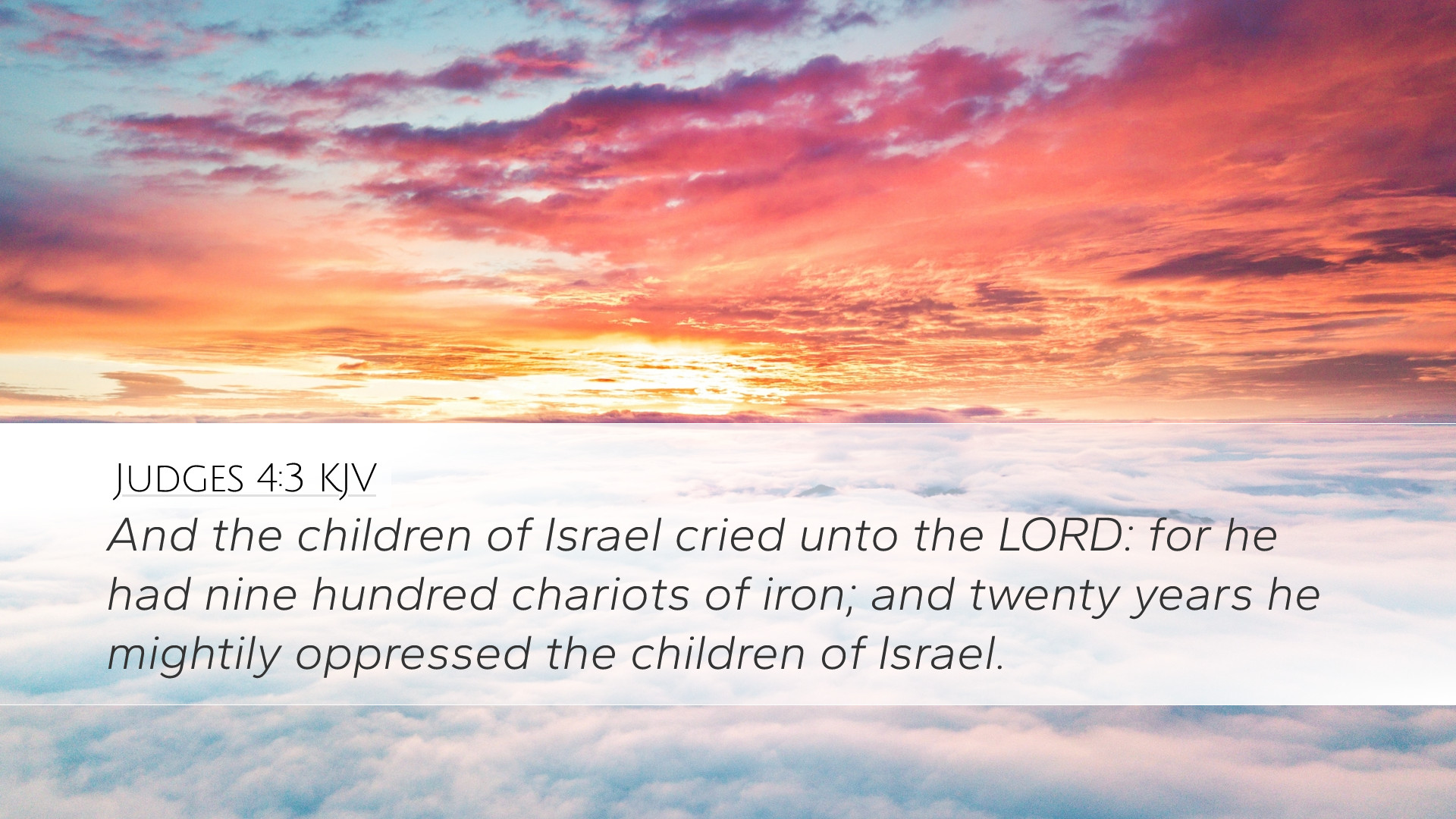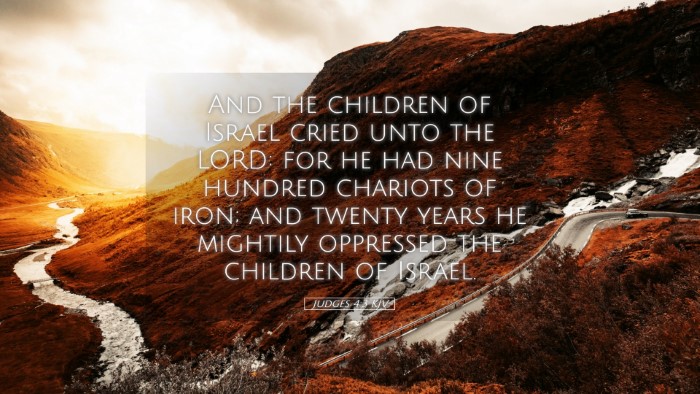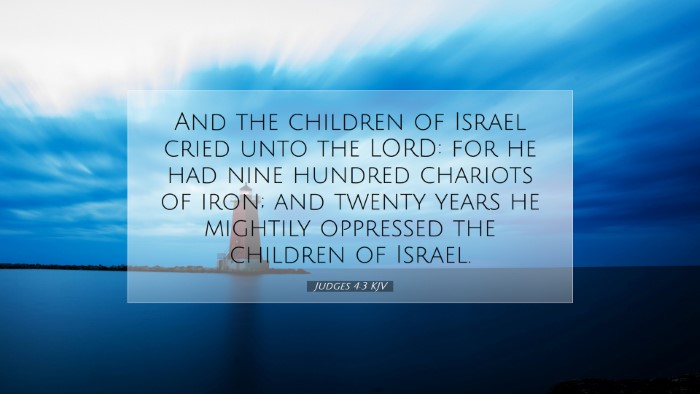Old Testament
Genesis Exodus Leviticus Numbers Deuteronomy Joshua Judges Ruth 1 Samuel 2 Samuel 1 Kings 2 Kings 1 Chronicles 2 Chronicles Ezra Nehemiah Esther Job Psalms Proverbs Ecclesiastes Song of Solomon Isaiah Jeremiah Lamentations Ezekiel Daniel Hosea Joel Amos Obadiah Jonah Micah Nahum Habakkuk Zephaniah Haggai Zechariah MalachiJudges 4:3
Judges 4:3 KJV
And the children of Israel cried unto the LORD: for he had nine hundred chariots of iron; and twenty years he mightily oppressed the children of Israel.
Judges 4:3 Bible Commentary
Commentary on Judges 4:3
Verse Context: Judges 4:3 states, "And the children of Israel cried unto the Lord: for he had 900 chariots of iron; and twenty years he mightily oppressed the children of Israel." This verse introduces a critical moment in the history of Israel during the time of the judges.
Historical and Cultural Background
The period of the judges was characterized by cycles of sin, oppression, repentance, and deliverance. After the death of Joshua, Israel faced numerous challenges, including foreign oppression. The presence of iron chariots, particularly those belonging to Sisera, the commander of Jabin’s army, signifies the technological and military superiority of the Canaanite forces that oppressed Israel.
Insights from Matthew Henry
Henry emphasizes the desperation of the Israelites as they cry out to God. Their cry indicates a deep recognition of their inability to save themselves. This acknowledgment is a crucial step in their repentance and return to the covenant relationship with God. Henry notes, "The oppressor's strength leads them to seek the true Source of strength, the Almighty God."
Insights from Albert Barnes
Barnes provides a detailed view on the nature of Israel’s oppression. He highlights that the chariots of iron symbolize not only military power but also the spiritual enemies that ensnare believers. The 20 years of oppression acts as a time of testing and shaping for the Israelites, drawing parallels to the spiritual struggles faced by the church today. Barnes states, "The oppression under Jabin serves as a lens through which we understand both the physical and spiritual battles Christians endure."
Insights from Adam Clarke
Clarke reflects on the significance of the Israelites crying out to the Lord. He discusses how this cry is an expression of their need for divine intervention. Clarke encourages readers to view this plea as a model for prayer in times of distress, arguing that the true nature of God is revealed when His people seek Him earnestly. He writes, "In the midst of trials, the faithful are called to lift their voices, for God delights in showing mercy to those who humbly seek Him."
Theological Reflections
This verse highlights key theological themes: the sovereignty of God, the nature of human depravity, and the power of repentance. The Israelites' cry symbolizes not just a plea for help but a return to God after a season of rebellion. It serves as a reminder that God often allows His people to face trials to bring them back to reliance on Him.
- Sovereignty of God: God has control over the events of history, and He raises up oppressors to bring about His purpose.
- Human Depravity: The cycle of sin often leads Israel into oppression, exemplifying the consequences of turning away from God's commandments.
- Power of Repentance: The act of crying out to God signifies a turning back to Him, a crucial step in the restoration of the relationship between God and His people.
Applications for Believers
Believers today can draw significant lessons from Judges 4:3. The historical context echoes the spiritual realities faced by modern Christians:
- Recognition of Need: Just as the Israelites recognized their dire condition, believers are reminded of their constant need for God’s grace and intervention.
- Persistence in Prayer: The Israelites cried out for twenty years. This perseverance should encourage today's believers to remain steadfast in prayer, trusting in God's timing.
- Hope in Deliverance: Just as God raised up Deborah and Barak for Israel’s deliverance, He provides leaders and means for the church to overcome spiritual struggles today.
Concluding Thoughts
Judges 4:3 serves as both a historical account and a rich source of spiritual insight. The themes of oppression, the call for deliverance, and God's faithful response carry significant weight for pastors and theologians. They remind us of the enduring nature of God's covenant love, which calls His people back to Him, even amidst the trials of life. Through the prophetic voice and leadership, God continues to provide hope and direction for His people, encouraging an ongoing relationship marked by prayer, repentance, and deliverance.


